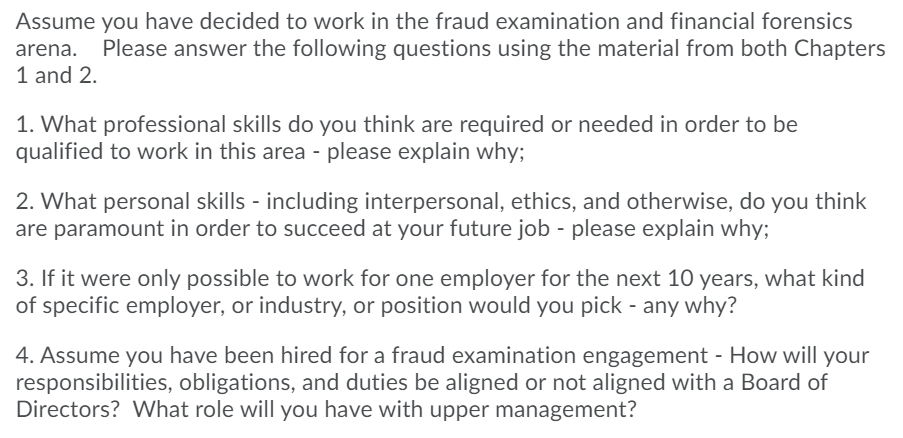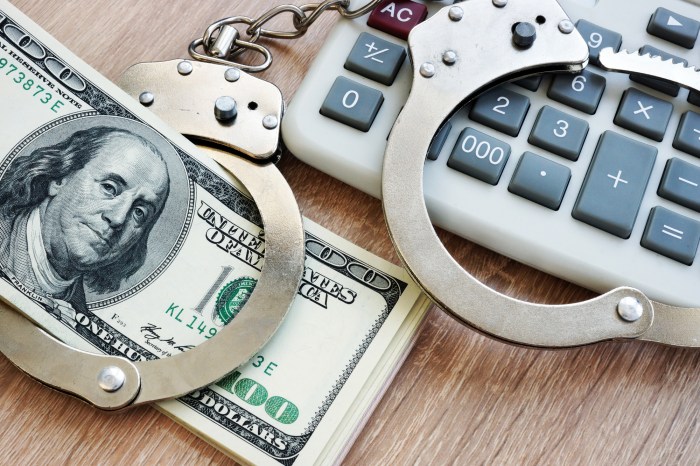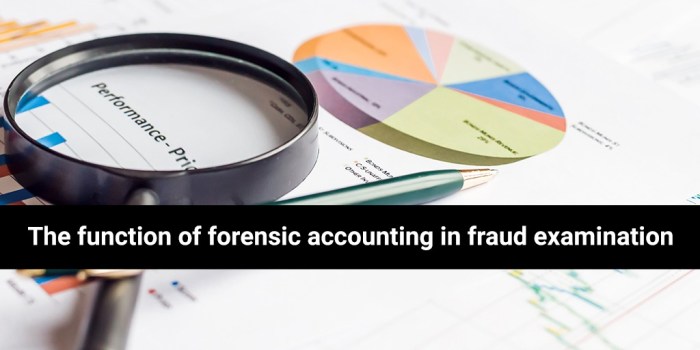Fraud examination and financial forensics emerge as indispensable disciplines in the fight against financial malfeasance, empowering organizations to safeguard their assets and uphold integrity. This comprehensive guide delves into the intricate world of fraud detection, prevention, and investigation, providing a thorough understanding of the strategies employed to uncover deception and restore trust.
Through a systematic exploration of key concepts, techniques, and ethical considerations, this discourse illuminates the critical role of fraud examiners and financial forensic professionals in safeguarding financial health and ensuring accountability.
Fraud Examination

Fraud examination involves the investigation and detection of fraudulent activities within organizations. It aims to protect assets, prevent financial losses, and maintain the integrity of financial reporting.
Role of Fraud Examiners
- Prevent and detect fraud through risk assessments and internal controls.
- Investigate allegations of fraud, gather evidence, and interview witnesses.
- Analyze financial data, identify anomalies, and trace financial transactions.
- Prepare reports, present findings, and recommend corrective actions.
Common Types of Fraud Schemes
- Asset misappropriation: Theft of cash, inventory, or other assets.
- Financial statement fraud: Misrepresentation of financial information to deceive investors or creditors.
- Corruption: Bribery, extortion, or illegal payments to influence decisions.
- Identity theft: Unauthorized use of personal information to obtain financial benefits.
Financial Forensics: Fraud Examination And Financial Forensics

Financial forensics involves the application of accounting, auditing, and investigative techniques to uncover financial fraud and irregularities. It is crucial in recovering assets, pursuing legal action, and restoring financial integrity.
Techniques Used in Financial Forensics
- Data analytics: Examining large datasets to identify patterns and anomalies.
- Transaction tracing: Following the flow of funds through multiple accounts and entities.
- Asset tracing: Locating and recovering hidden assets.
- Forensic accounting: Analyzing financial records to detect fraud and irregularities.
Role of Financial Forensics
- Recovery of stolen assets through civil or criminal proceedings.
- Pursuit of legal action against fraud perpetrators.
- Prevention of future fraud through enhanced internal controls and risk management.
Fraud Prevention and Detection
Fraud prevention and detection programs aim to minimize the risk of fraud and identify fraudulent activities early on. They involve a combination of internal controls, data analysis, and whistleblower programs.
Key Elements of a Fraud Prevention Program
- Strong internal controls: Policies, procedures, and systems to prevent and detect fraud.
- Fraud risk assessments: Identifying and evaluating fraud risks within an organization.
- Whistleblower programs: Encouraging employees to report suspected fraud.
Methods for Detecting Fraud
- Internal audits: Regular reviews of financial and operational activities.
- Data analysis: Using statistical techniques to identify anomalies and patterns.
- Whistleblower reports: Investigations based on anonymous or confidential reports.
Fraud Investigation and Reporting

Fraud investigations involve gathering evidence, interviewing witnesses, and analyzing financial data to determine the nature and extent of fraud. Effective documentation and reporting are crucial for successful investigations.
Steps Involved in a Fraud Investigation, Fraud examination and financial forensics
- Evidence gathering: Collecting relevant documents, records, and witness statements.
- Witness interviews: Obtaining information from individuals involved or with knowledge of the fraud.
- Analysis: Reviewing and interpreting evidence to identify patterns and determine the extent of fraud.
- Reporting: Preparing detailed reports that document findings and recommendations.
Role of External Auditors and Law Enforcement
- External auditors: Providing independent assessments of financial statements and identifying potential fraud.
- Law enforcement: Investigating criminal fraud and prosecuting perpetrators.
Ethical and Legal Considerations

Fraud examiners and financial forensic professionals must adhere to ethical principles and legal requirements to ensure the integrity of investigations and protect the rights of individuals.
Ethical Principles
- Objectivity and independence: Maintaining impartiality and avoiding conflicts of interest.
- Confidentiality: Preserving the privacy of individuals and organizations involved in investigations.
- Professionalism: Acting with integrity and competence.
Legal Implications
- Protection of privacy: Respecting the rights of individuals and organizations to privacy.
- Due process: Ensuring that individuals are treated fairly and have the opportunity to defend themselves.
- Confidentiality: Maintaining the confidentiality of sensitive information throughout the investigation process.
Answers to Common Questions
What is the primary objective of fraud examination?
Fraud examination aims to detect, investigate, and prevent fraud by identifying fraudulent activities, assessing risks, and implementing control measures.
How does financial forensics contribute to fraud investigations?
Financial forensics employs specialized techniques, such as data analytics and transaction tracing, to uncover financial evidence of fraud, facilitating asset recovery and legal action.
What are the key elements of a fraud prevention program?
Fraud prevention programs typically involve establishing internal controls, conducting risk assessments, implementing whistleblower programs, and promoting a culture of integrity.
What ethical considerations guide fraud examiners and financial forensic professionals?
Fraud examiners and financial forensic professionals adhere to ethical principles that emphasize confidentiality, objectivity, and the protection of privacy and individual rights.